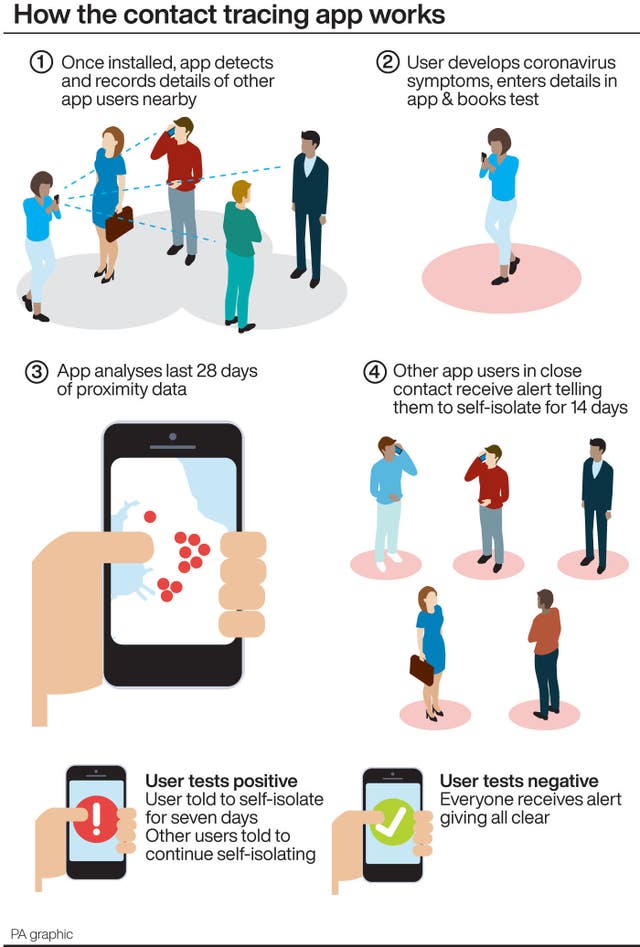Hancock: Misunderstandings on privacy of tracing app make virus fight harder
The Health Secretary was responding to concerns that the app could be used to track people.

Misunderstandings about privacy issues with the UK’s contact tracing app make it harder to fight coronavirus, the Health Secretary has said.
Matt Hancock again attempted to allay concerns about the app on Wednesday, after a trial got under way on the Isle of Wight.
Amnesty International UK has been among the voices to share their fears that privacy and rights could become another casualty of the virus as a result of the app, while a group of UK academics working in cyber security, privacy and law recently signed a joint letter saying it could open the door to surveillance once the pandemic is over.
The Government has refuted such suggestions, saying data is kept on a person’s smartphone and can only be shared with the NHS when the individual decides, if they are displaying symptoms and request a test.

Speaking to Sky News, the Health Secretary said concerns that the app could track people are “wrong” and “not based on what’s happening in the app”.
“I haven’t yet seen a critique based on privacy that is accurate or based on actual understanding of what the app does, so if anybody… has those concerns or is proposing to write about them, I would suggest that they go and look at what the app actually does before doing so,” he said.
“Because if you are spreading those sorts of stories and discouraging people from downloading the app, then what you’re actually doing is making it harder for us as a community to fight this virus.
“I’m being quite robust in my response to these critiques because we have taken the concerns into account.”
Mr Hancock reiterated that an ethics advisory board will oversee the app, and there are plans to publish a data protection impact assessment and the source code for public scrutiny.
One of the key issues has been around the decision to take a centralised approach, meaning when a person chooses to share their data it is sent to a computer server anonymously, instead of staying between smartphone devices, known as decentralised.
Professor Michael Parker, a member of the Government’s Sage advisory group and an NHS adviser on the app, told BBC Radio 4’s Today programme: “The advantage of a centralised system is that we want our health system to be coherent, we want it to work in a way that is intelligent.
“And we want the NHS to be taking control of this. We don’t want, I think, our health system to be managed by tech companies in a way that is potentially disconnected.
“I would argue that we really want an integrated system that is centralised but carefully managed and in an approach that treats patient information in a way that is appropriately depersonalised.”
Former deputy Labour leader Harriet Harman has called for legislation to protect the personal data of those using the NHS coronavirus app.





